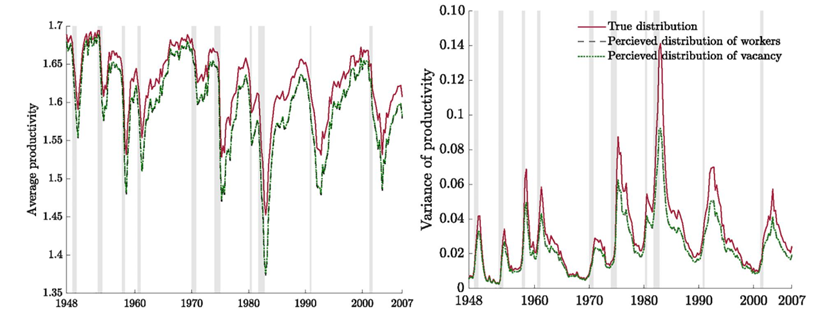
ABSTRACT
Who knows the underlying productivity distribution function? Interestingly, this ambiguous function is often referenced to make decisions including job creations, wage determinations, contract formulations, etc. To investigate how ambiguity shapes labor markets, we integrate ambiguity preferences into the Diamond-Mortensen-Pissarides (DMP) model. We find that ambiguity-averse job- and talent-hunters are conservative. Our quantitative analysis indicates that but for the ambiguity, the American unemployment rate would have increased in the postwar era. This paper generalizes the DMP model, enhances our understanding of the labor market, and calls for policies concerning labor market information.
KEYWORDS
Ambiguity aversion, skewness shocks, unemployment
JCR CLASSIFICATION
Q3
JEL CLASSIFICATION
D83, E24, E32, J64
Economic Inquiry
https://doi.org/10.1111/ecin.13150
